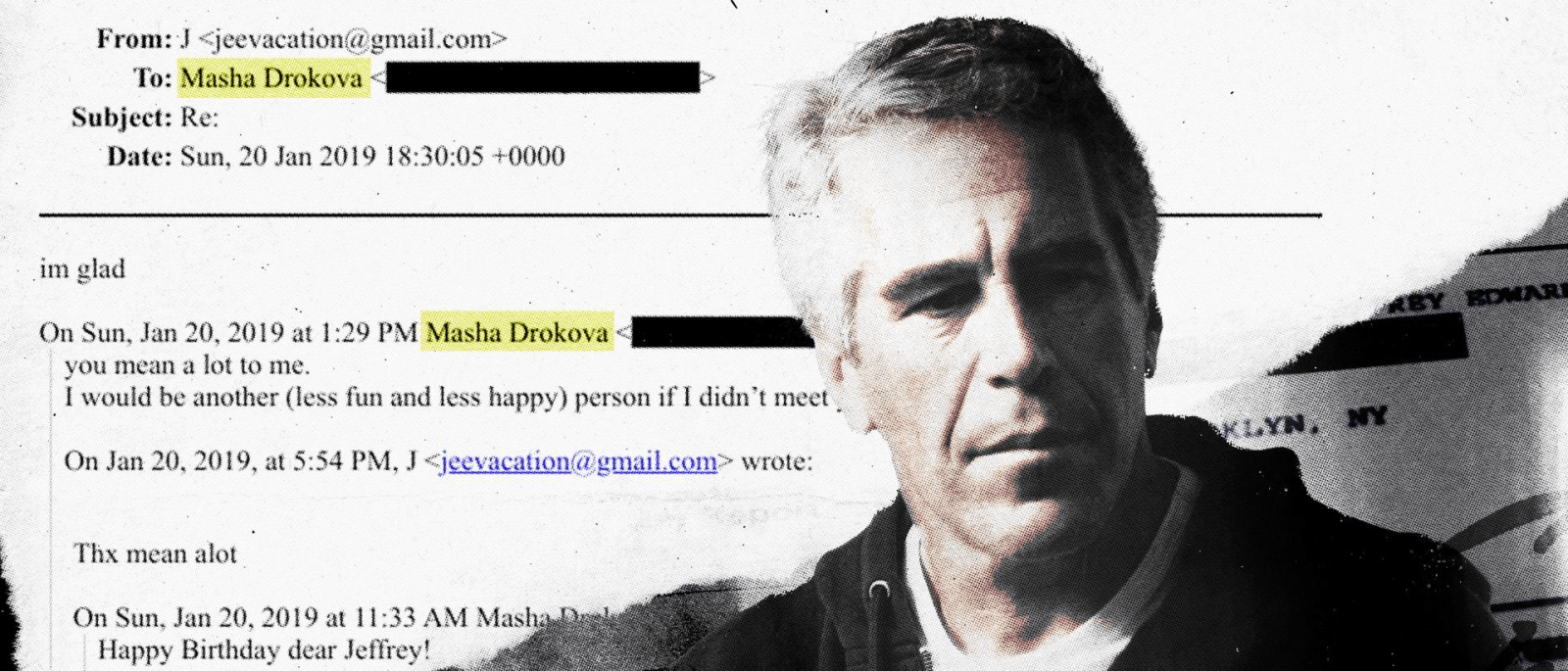Ethan Thornton’s vision for Mach Industries wooed blue-chip investors Sequoia and Bedrock, but he has struggled to execute, hamstrung by technical challenges, safety hazards and a cavalier approach to leadership.

At 19 years old, Ethan Thornton had a grand vision for a new company: He’d do away with the U.S. military’s centuries-long reliance on gunpowder munitions by developing an array of hydrogen-powered weaponry. He named the company Mach Industries and, after dropping out of MIT, began R&D work on an artillery that could be replenished by hydrogen generators deployed on the frontlines, claiming it would give the military a critical battlefield advantage.
Investors swarmed over what appeared to be an up and coming defense tech company led by a visionary teenage dropout. Sequoia’s Shaun Maguire co-led a $5 million seed funding round last summer — the venture firm’s first check issued to a defense company. Three months later, Bedrock’s managing partner Geoff Lewis led a $79 million series A investment, valuing the nascent startup at more than $300 million.
But Mach’s giddy financing had been prefaced by a troubling, and near fatal, misstep. Months earlier, Thornton and another employee were almost killed while testing a Mach weapon. Four former employees with knowledge of the matter told Forbes that Thornton was reaching into a blast chamber surrounding a hydrogen-powered gun when the gas unexpectedly ignited, blowing up the machinery and sending a spray of shrapnel across the room. Thornton was miraculously unharmed, but a colleague helping with the test was rushed to the hospital with hundreds of pieces of metal in his body. (The employee recovered, though some of the shrapnel remains.)
Mach is part of a new cohort of defense tech companies, led by young, patriotic entrepreneurs looking to build businesses serving America’s national security interests. They’re driving a defense tech boom engorged with VC funding; between 2018 and 2023, $100 billion in venture funding poured into the sector, per Pitchbook. But here, Silicon Valley’s “move fast and break things” ethos seems an unwise approach to building weapons. Interviews with nine current and former Mach employees reveal a chaotic early-stage company that failed to deliver on the vision investors were expecting, compounded by safety issues and a juvenile approach to leadership.
Beyond hydrogen-powered firearms that work like pneumatic potato cannons, Mach had sold investors on “Prometheus,” a mobile hydrogen generator that could be deployed on the battlefield. But, according to three former employees, the device was scrapped when Mach couldn’t figure out a cost effective way to produce aluminum fuel necessary for hydrogen production.
“I realised, wow, this is not what I wanted to be a part of.”
Former Mach employee
“The most concerning thing about it all, honestly, was the financial aspect of it,” said Eric McManus, a former program manager and U.S. Navy veteran who left Mach last year. “To get that much money, that soon, without any real product, without a flight test, without a demo? Nothing.”
The tests that did happen did not go well. During a jet propulsion test last year, Thornton attempted to hold a drone down with his hands while it was at full throttle to help steady it for launch, according to interviews with multiple people who were present. Senior employees were dismayed; among many risks, the drone could have tipped over and effectively become a projectile, endangering everyone on the test range, three ex-staffers told Forbes. Range administrators shut the test down, they said.
Meanwhile, Mach employees struggled with Thorton’s cavalier leadership style and puerile sense of humor. At one point, a TV in the Austin headquarters’ main foyer displayed a timer called “Time until Taiwan Invasion” which, according to one photo seen by Forbes, estimated a Chinese attack would occur in 1800 days — the time by which Mach must be ready to deploy its product. “I was in the Taiwan Strait while there was civil unrest in 2008, and he was probably still in middle school,” said McManus. “I found it very offensive.”
On another occasion during a team meeting, Thorton compared Mach’s hierarchy to that of a cult: leader, clergy, priests, community leaders, true believers. A photo of a whiteboard showed the phrase “What Is A Cult?” written on it, above a description of its various features, like “Communal Living: All interactions together. Birth, life, death. Eat, breathe, sleep” and “Hive mind: true love for fellow members.” Employees were perplexed by the analogy. “I realized, wow, this is not what I wanted to be a part of,” one said.
Thornton declined to answer a series of detailed questions, but did publish a lengthy blog post on the company’s website addressing some of the issues Forbes raised. “We’re building an incredibly difficult company, and as with most startups, the chance of failure is high,” he wrote. “As a 1-year-old business, we’ve made many mistakes, but as part of our culture, we work to fix them, learn from them, and relentlessly improve.”
Bedrock and Sequoia didn’t respond to comment requests.
Thornton built his team around a shared goal of helping America’s military interests, which he said started when he grew up helping his grandfather on a farm in West Texas. “I was working out of a dorm room 15 months ago,” he wrote in the blog post. “Today, I write this from our 115,000 sq ft factory, where I work alongside people I deeply admire to develop world-changing products for war-fighting customers.” He said the company has used 15% of the money it’s raised and currently has 45 employees.
Thornton, who was named a 2024 Forbes 30 Under 30 and Thiel Fellow last year, has previously said he borrowed $200 from his parents in high school to build a rudimentary gas gun using “deer feeder batteries and an electrolyzer.” After a stint as a mechanic in high school, he attended MIT, where, he claimed to TechCrunch, he assembled a team of undergrads and tested a “large, mounted gun under the railroad tracks near Charles River.”
During his time at MIT, he convinced a team of hydrogen experts led by Erik Limpaecher from the school’s military laboratory Lincoln Labs, to leave their posts to work on his vision of replacing gunpowder, founding the company as Trident Industries at the end of 2022. After changing its name to Mach, the company began developing half a dozen products named after Greek gods, including a drone called Medusa and a reconnaissance balloon called Hades, according to a pitch deck seen by Forbes.
But three months after Bedrock reportedly led Mach’s series A funding round in October 2023, Limpaecher announced on LinkedIn that he was leaving Mach to start a new company, “bringing with me an existing team, technology, prototype products, customer relationships, and revenue” — effectively ending the company’s hydrogen ambitions. Responding to Limpaecher’s post, Thornton said: “Early this year we decided to spin this team off of Mach. While they were executing at an incredible level, we felt that it was best to focus on our core product line.” In an interview, Limpaecher said he was “glad Ethan supported our plans.”
In January, the company pivoted to focus on a drone called Viper — a move that lumps it in with many others vying to sell drones to the U.S. military; the company projected around $850,000 in revenue this year from the product, according to internal documents obtained by Forbes. However, it has since been redesigned as a cruise missile that “will accomplish its role for less than 25% of the cost” of current products, Thornton wrote last week in the blog post.
Thornton has since moved the company’s headquarters to Huntington Beach, California, near the El Segundo neighborhood that’s attracted hype from investors like Andreessen Horowitz and has a vast pool of hardware talent. He also appears to be making in-roads with the Pentagon; recently he was invited to talk on a panel hosted by the Army Application Lab. And this week he disclosed that he had “successfully executed a full flight on a military test range” for another undisclosed product the company is developing.
“When I went to college, I wanted to help national security. I was, and still am, incredibly concerned about America’s ability to fight a major war,” Thornton wrote in his blog last week, adding: “Between investors and recruits, I received far more traction than I expected.”
This article was first published on forbes.com and all figures are in USD.


